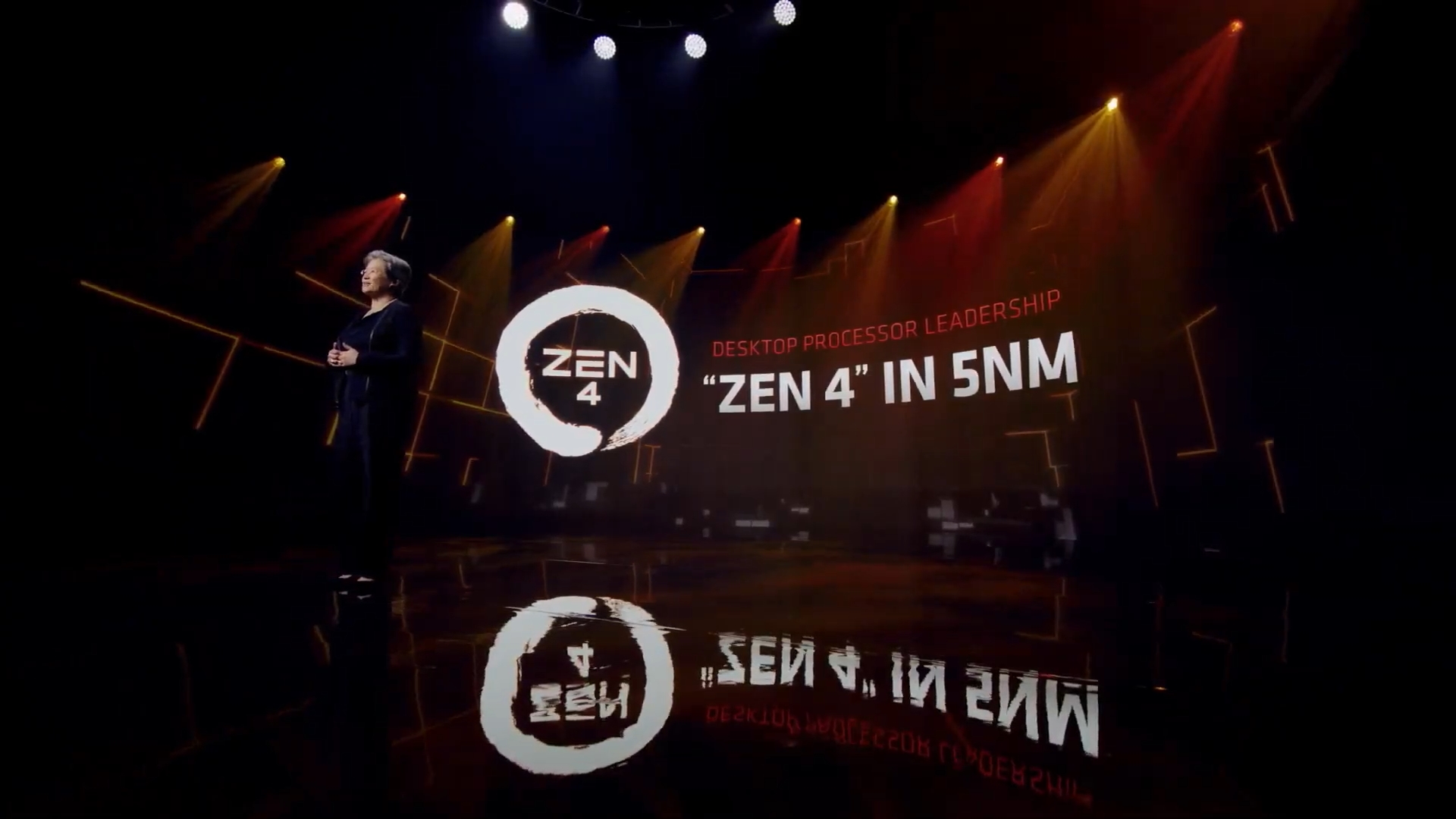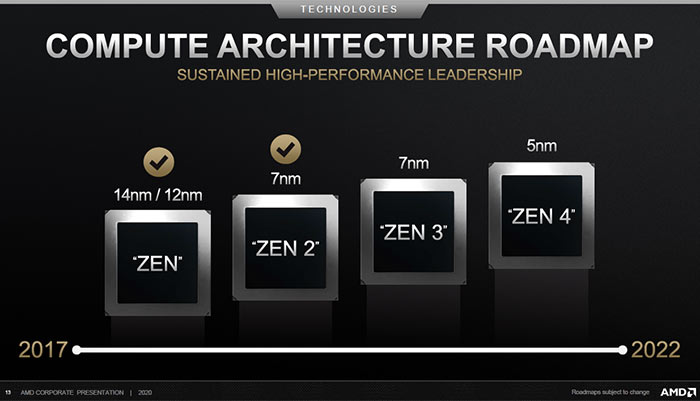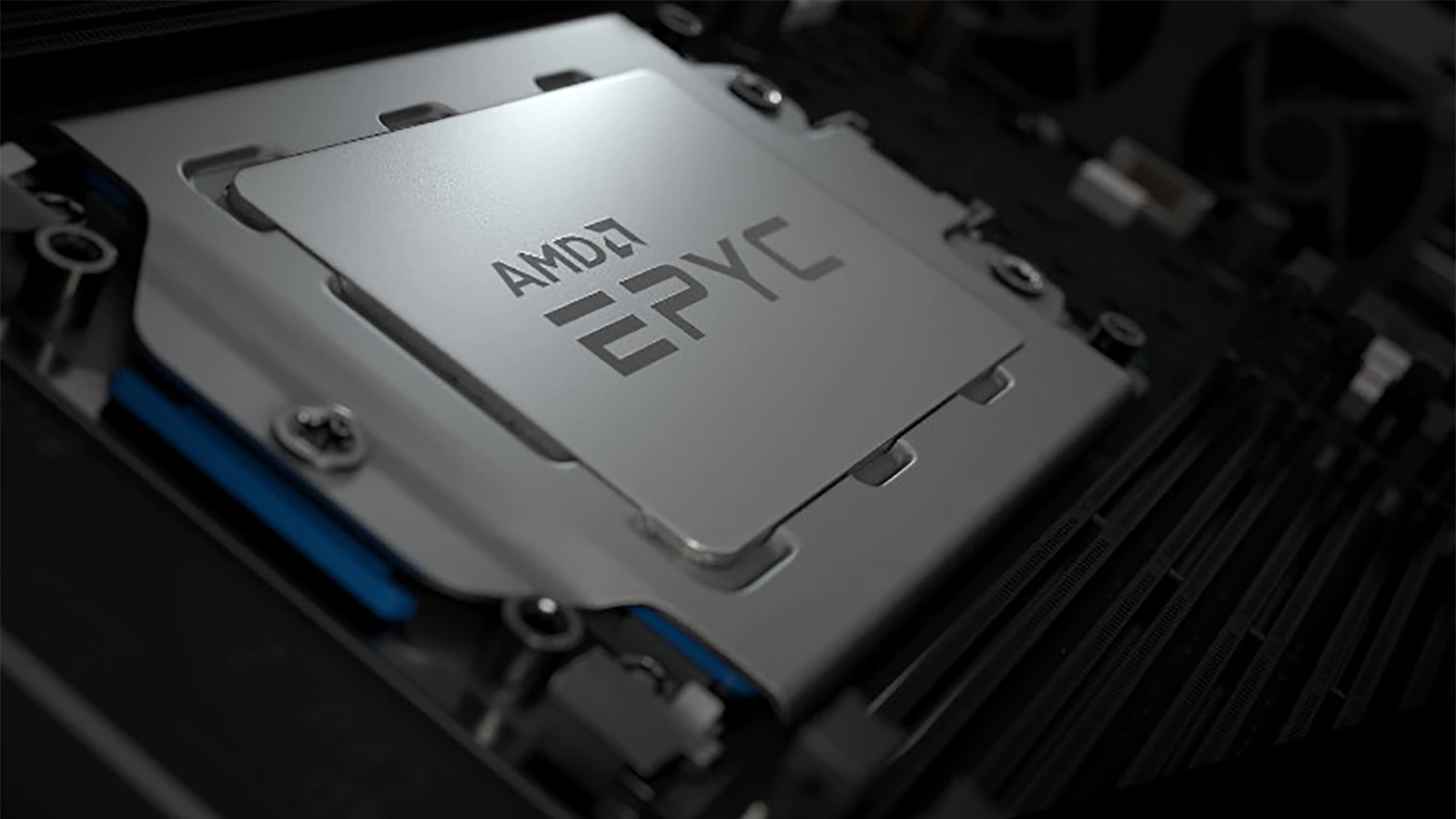AMD Zen 4: everything we know so far
What's up with Team Red's next CPU architecture?

With the success of AMD's Zen 3 Ryzen 5000-series processors, we and everyone else is looking to the horizon for the company's next architecture: AMD Zen 4.
The new 5nm architecture is going to be an important advance for AMD in its battle with archrival Intel, especially following the release of Team Blue's Alder Lake processors in November 2021, and the CES 2022 announcement of Intel Alder Lake mobile processors.
AMD CEO Dr. Lisa Su made some news of her own during CES 2022, announcing the company's new Zen3+ mobile processors, the AMD 6000-series, but we also got some news on AMD Zen 4 as well as getting a brief glance at a prototype chip during Dr. Su's keynote address.
While details on the upcoming Zen 4 chips was rather limited, we still got some strong hints about what the new chips are going to bring to the table. So what do we know about AMD Zen 4, and what rumors have we heard about the next-gen chips? Let's dig in.
Cut to the chase
- What is it: AMD's next generation of CPU architecture
- When is it out: Second half of 2022
- How much will it cost? Likely starting around $125/£90/AU$160 for low-end Ryzen 3 processors and going as high as tens of thousands of dollars/pounds for AMD Zen 4 EPYC server processors

AMD Zen 4 release date
AMD's production roadmaps originally slated AMD Zen 4 to enter mass production in July 2020, with a release in early 2021, but that obviously hasn't happened. It's definitely understandable, given the Covid-19 pandemic and the semiconductor shortage issues, but there is obviously going to be a pretty substantial delay.
We do have a more firm release window now, however. During the company's keynote at CES 2022, Dr. Su said that AMD Zen 4 chips will start rolling out in the second half of 2022, starting with the Ryzen 7000-series desktop chips.
Mobile chips will probably be several months after that, and it's not known when EPYC server chips can expect a Zen 4 upgrade.
Sign up for breaking news, reviews, opinion, top tech deals, and more.
- Where to buy AMD Ryzen 5900X and 5950X: who has stock?
This will puts AMD Zen 4's release nearly a year after the launch of Intel Alder Lake processors, something that should concern AMD – though the company has openly dismissed Intel's turn towards big.LITTLE processors as a technology in search of a purpose outside of mobile devices. The success of Apple's M1 chip hasn't seemed to change that stance, at least not officially.
Still, a whole year without a competing step up in processor generation sure looks like a gamble on AMD's part. In 2021, it hit relative desktop market share parity with Intel for the first time in 15 years, so stepping off the field as it were for that long might be the opening Intel needs to get its footing after a few tough years.
This is especially true since AMD Zen 3 doesn't have DDR5 or PCIe 5.0 support, while Intel Alder Lake will. While DDR5 will be supported in Zen 4, we don't know officially if PCIe 5.0 will be, though Dr. Su gave a pretty strong indication that it will.

AMD Zen 4 specs
There isn't a lot that we know about AMD Zen 4, at least not officially, beyond the fact that it is using TSMC's 5nm production process. There is a very strong expectation that AMD might be aiming for a higher core count with Zen 4 though, going as high as 24 cores for its consumer processors and even suggestions of a 128-core/256-thread behemoth for its EPYC server CPU.
Recently, AMD debuted a 3D chiplet technology in a prototype Ryzen 5950X chip that greatly expanded the available CPU cache for the processor, which alone provided the kind of performance gains normally seen with leaps in processor generations. This 3D architecture technique isn't just for cache though, and there's little doubt that these kinds of innovations will start being introduced in Zen 4.
There's also a lot of talk about AMD Zen 4 chips introducing integrated Navi graphics, which would be a major coup for Team Red as it would seriously beef up the graphics capabilities of its Zen 4 APUs, something that is sure to be popular with more budget conscious consumers and builders.

AMD Zen 4 performance
The most obvious improvement in performance is going to come from AMD Zen 4's move to a 5nm process. This could bring as much as a 1.87x transistor density improvement over the TSMC 7nm process used in AMD Zen 3. That's nearly double the density over Zen 3, which would imply some serious performance gains from this improvement alone.
More recently, this jump in power has started to come into better focus, with performance gains as large as 40% over its current gen processors being batted about online. We may see as much as a 25% boost in AMD Zen 4's IPC performance and, if AMD sticks with PCIe 4.0 for Zen 4, four additional lanes, 28 from the current 24. There's also talk of core frequencies of 5.0GHz for all cores, regardless of how many AMD ends up using in its next-gen processors.
While all of these, individually, would be impressive, taken together they could end up producing a massive performance improvement over AMD Zen 3 and whatever Intel has planned for its Raptor Lake processors, which are expected to be released around the same time.
- Keep up to date on all the latest tech happenings with the TechRadar Newsletter

John (He/Him) is the Components Editor here at TechRadar and he is also a programmer, gamer, activist, and Brooklyn College alum currently living in Brooklyn, NY.
Named by the CTA as a CES 2020 Media Trailblazer for his science and technology reporting, John specializes in all areas of computer science, including industry news, hardware reviews, PC gaming, as well as general science writing and the social impact of the tech industry.
You can find him online on Bluesky @johnloeffler.bsky.social